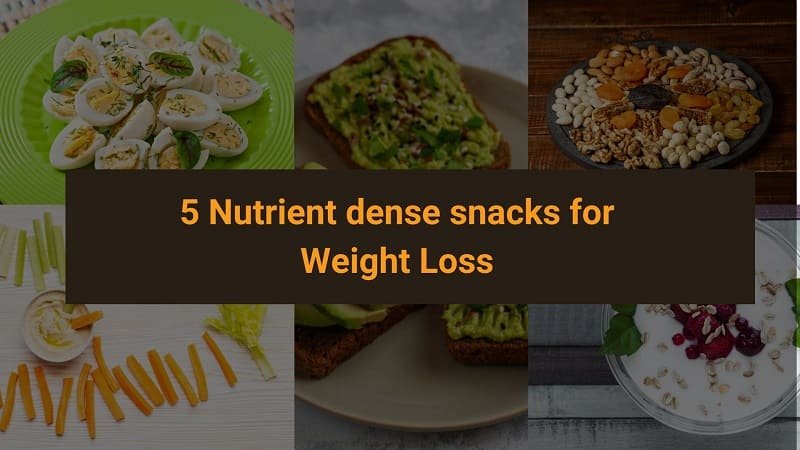Table of Contents
Introduction
Intermittent fasting has gained immense popularity in recent years as a strategy to lose weight and improve metabolic health. While it works wonders for many, the intermittent fasting schedule for women may differ from men due to various physiological reasons. Let’s delve into a comprehensive guide to understanding the best intermittent fasting schedule for women.
Understanding the Basics: What Is Intermittent Fasting?
Before diving into the intermittent fasting schedule for women, it’s crucial to understand the concept. Intermittent fasting is not a diet but rather an eating pattern where one cycles between periods of eating and fasting. This schedule does not dictate what foods to eat but rather when to eat them.
Why the Intermittent Fasting Schedule for Women Might Differ
Women’s bodies are hormonally different from men’s. Fasting can sometimes affect a woman’s menstrual cycle, mood, and bone density. Therefore, while adopting an intermittent fasting schedule for women, these factors need to be taken into consideration to ensure overall health and wellbeing.
The Most Popular Intermittent Fasting Schedules for Women
sample plan for the 16/8 Intermittent Fasting method
The Most Popular Intermittent Fasting Schedules for Women
16/8 Method: This is the most common intermittent fasting schedule for women. It involves fasting for 16 hours each day and limiting the eating window to 8 hours. For many women, this means eating between noon and 8 PM.
| Time | Activity | Meal / Snack Ideas |
|---|---|---|
| 6:00 am - 8:00 am | Fasting | Water, Black coffee, or Herbal tea |
| 8:00 am - 12:00 pm | Fasting | Water, Black coffee, or Herbal tea |
| 12:00 pm - 1:00 pm | Break Fast | Grilled chicken salad with vinaigrette, Quinoa, and a serving of fruit |
| 1:00 pm - 4:00 pm | Eating Window | Handful of almonds or Greek yogurt |
| 4:00 pm - 6:00 pm | Eating Window | Smoothie with spinach, protein powder, almond milk, and berries |
| 6:00 pm - 8:00 pm | Dinner | Grilled fish, Steamed broccoli, and Brown rice |
| 8:00 pm - 12:00 am | Start Fasting | Water or Herbal tea (no added sugars) |
5:2 Diet: Women consume 500-600 calories on two non-consecutive days of the week and eat normally the other five days. This approach can be less daunting for some.
| Time | Activity | Meal / Snack Ideas (Approx. Calories) |
|---|---|---|
| 7:00 am - 8:00 am | Breakfast | 2 scrambled eggs with spinach (140 calories) |
| 10:00 am - 11:00 am | Snack | 1 apple (95 calories) |
| 1:00 pm - 2:00 pm | Lunch | Grilled chicken salad with vinaigrette and a variety of veggies (200 calories) |
| 4:00 pm - 5:00 pm | Snack | 10 almonds (70 calories) |
| 7:00 pm - 8:00 pm | Dinner | Vegetable soup (90 calories) |
Eat-Stop-Eat: This involves fasting for 24 hours once or twice a week. Given its intensity, it may not be suitable for all women, especially beginners.
| Time | Activity | Allowed Consumables |
|---|---|---|
| 7:00 am - 8:00 am | Start Fasting | Water, Black coffee, Herbal tea (no added sugars) |
| 10:00 am - 11:00 am | Fasting | Water, Black coffee, Herbal tea |
| 1:00 pm - 2:00 pm | Fasting | Water, Black coffee, Herbal tea |
| 4:00 pm - 5:00 pm | Fasting | Water, Black coffee, Herbal tea |
| 7:00 pm - 8:00 pm | Fasting | Water, Black coffee, Herbal tea |
| 10:00 pm - 11:00 pm | Fasting | Water, Herbal tea |
| 7:00 am - 8:00 am (Next Day) | End Fasting | Resume normal eating pattern |
Alternate-Day Fasting: With this method, women alternate between days of regular eating and days of fasting (or very limited calorie intake).
| Time | Activity | Allowed Consumables |
|---|---|---|
| 7:00 am - 8:00 am | Start Fasting | Water, Black coffee, Herbal tea (no added sugars) |
| 10:00 am - 11:00 am | Fasting | Water, Black coffee, Herbal tea |
| 1:00 pm - 2:00 pm | Fasting | Water, Black coffee, Herbal tea |
| 4:00 pm - 5:00 pm | Fasting | Water, Black coffee, Herbal tea |
| 7:00 pm - 8:00 pm | Fasting | Water, Black coffee, Herbal tea |
| 10:00 pm - 11:00 pm | Fasting | Water, Herbal tea |
| 7:00 am - 8:00 am (Next Day) | End Fasting | Resume normal eating pattern |
Adjusting the Intermittent Fasting Schedule for Women’s Hormonal Health
It’s important to adapt the intermittent fasting schedule for women to ensure it does not disrupt hormonal balance. Some women may experience disruptions in their menstrual cycle when they begin fasting. If this occurs, consider:
Shortening the Fasting Window: Instead of a 16/8 schedule, women might find a 14/10 schedule (14 hours fasting and a 10-hour eating window) more suitable.
Avoiding Continuous Days of Caloric Restriction: Rather than the 5:2 method, opt for a more flexible approach where the low-calorie days are not back-to-back.
Tips for Success with the Intermittent Fasting Schedule for Women
- Stay Hydrated: During fasting windows, drink plenty of water, herbal teas, or black coffee.
- Listen to Your Body: If you feel weak, dizzy, or overly hungry, consider adjusting your fasting schedule.
- Prioritize Sleep: Ensure you get adequate sleep as sleep deprivation can affect hunger hormones.
- Consult a Healthcare Professional: Before starting any fasting schedule, especially if you have underlying health issues.
Tips for Success with the Intermittent Fasting Schedule for Women
- Stay Hydrated: During fasting windows, drink plenty of water, herbal teas, or black coffee.
- Listen to Your Body: If you feel weak, dizzy, or overly hungry, consider adjusting your fasting schedule.
- Prioritize Sleep: Ensure you get adequate sleep as sleep deprivation can affect hunger hormones.
- Consult a Healthcare Professional: Before starting any fasting schedule, especially if you have underlying health issues.
Conclusion: Tailoring the Intermittent Fasting Schedule for Women to Individual Needs
While intermittent fasting has proven benefits, it’s essential to understand that the ideal intermittent fasting schedule for women can vary based on individual needs, health conditions, and lifestyle. Always prioritize your health and consult with a healthcare professional to find a schedule that works best for you. Remember, it’s not just about fasting; it’s about making sustainable changes for long-term health and wellbeing.
FAQ About Intermittent Fasting Schedule for Women
-
1. What is intermittent fasting?
Intermittent fasting is an eating pattern where you cycle between periods of eating and fasting. It doesn't prescribe specific foods but rather focuses on when you should eat.
-
2. How does intermittent fasting differ for women compared to men?
Women's hormonal balances can be more sensitive to strict fasting schedules. Some women may experience disruptions in their menstrual cycles or other hormonal imbalances if they fast for prolonged periods.
-
3. Which intermittent fasting schedule for women is most recommended?
The 16/8 method (fast for 16 hours and eat during an 8-hour window) is popular among many women. However, the best schedule is subjective and depends on an individual's body and goals.
-
4. How does the 5:2 Diet work for women?
On the 5:2 diet, women eat normally for five days of the week, and then for two non-consecutive days, they consume a restricted calorie intake of about 500 calories.
-
5. Is the Eat-Stop-Eat plan safe for women?
The Eat-Stop-Eat method involves 24-hour fasts once or twice a week. It's essential to listen to your body, as extended fasts might not be suitable for everyone, especially women who are pregnant, breastfeeding, or have a history of eating disorders.
-
6. What's the idea behind Alternate Day Fasting?
With Alternate Day Fasting, you eat normally one day and then fast or eat very few calories the next. It's a more rigorous approach and may not be suited for all women.
-
7. Can women do intermittent fasting while pregnant or breastfeeding?
It's crucial to consult with a healthcare professional before trying intermittent fasting during pregnancy or breastfeeding. Nutrient intake is vital during these periods.
-
8. How does intermittent fasting affect women's hormones?
Some women might experience changes in menstrual cycles, mood fluctuations, or sleep patterns. If any disturbances occur, it's essential to reassess the fasting schedule or stop it altogether.
-
9. What should women eat during their eating windows?
Focus on nutrient-dense foods such as lean proteins, healthy fats, whole grains, and plenty of fruits and vegetables. This ensures you get the necessary nutrients in your limited eating window.
-
10. Are there any side effects of intermittent fasting for women?
Some women may experience fatigue, dizziness, irritability, or headaches, especially when starting. It's essential to stay hydrated and consult a healthcare professional if side effects persist.
-
11. Is intermittent fasting beneficial for women with PCOS?
Some studies suggest that intermittent fasting may help manage insulin resistance, common in women with PCOS. However, individual reactions can vary, so it's essential to monitor symptoms and consult a healthcare professional.










